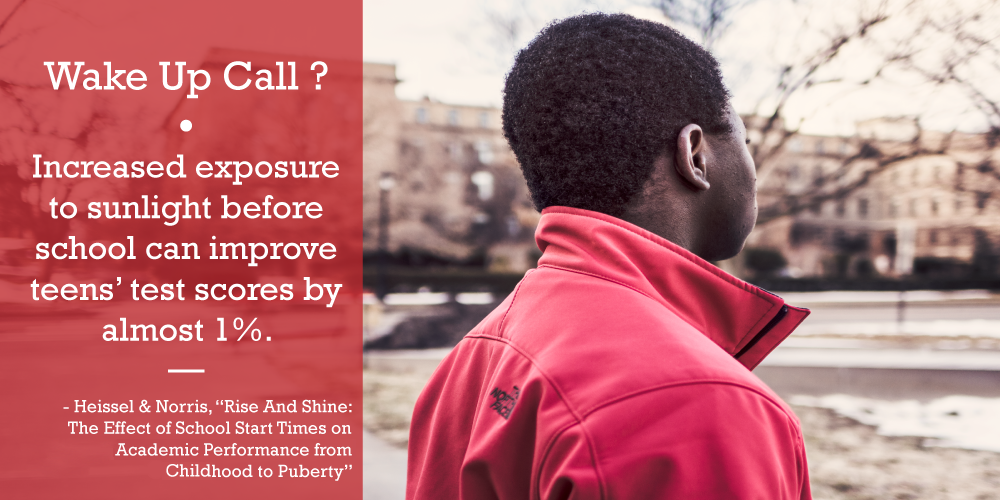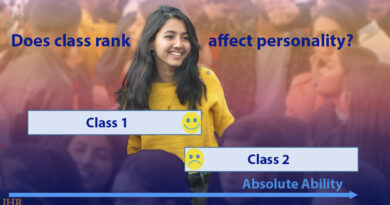Later Start Times Increase Academic Achievement for Teens
Researchers—and parents of teenagers—have long suspected that school starts too early in the morning for adolescents. New research by Jenni Heissel (Naval Postgraduate Academy) and Sam Norris (Northwestern University) shows exactly how much early start times are hindering academic achievement.
Heissel and Norris investigated the effect of later start times for students of all ages. They studied a natural experiment in the Florida panhandle: the time zone boundary between Central and Eastern Time. On the eastern side of the time zone boundary, sunrise happens later, meaning that students have less time between sunrise—when the circadian rhythm naturally awakens children—and school start time.
They found that students who move from Eastern Time to Central Time are exposed to more sunlight before school and do better academically. Students who move from Central Time to Eastern Time get less sunlight, and their test scores decline.
The effects of sunlight on academic performance are much larger after the onset of puberty, meaning that it is particularly important to move start times later for high schoolers. In fact, for younger students start times have nearly no effect on achievement. This means that even if school districts are unable to move start times later for all children (for example, because parents need to get to work on time), they can improve average performance by scheduling start times earlier for younger children and later for older children.
Read the full study in the Journal of Human Resources: “Rise and Shine: The Effect of School Start Times on Academic Performance from Childhood through Puberty,” by Jenni Heissel and Sam Norris




